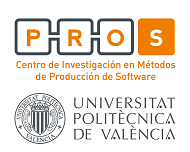Modern organizations are faced with the very challenging problem of rapidly responding to continual external business pressures in order to sustain their competitiveness or to effectively perform mission-critical services. Difficulties arise because the continual evolution of systems and operational procedures that are performed in response to the external pressures eventually leads to suboptimal configurations of the systems and processes that drive the organization.
The management of continuous business change is complicated by the current lack of effective mechanisms for rapidly responding to multiple change drivers. The use of inadequate change management methods and technologies introduces accidental complexities that significantly drive up the cost, risk, and effort of making changes. These problems provide opportunities for developing and applying organization-modeling approaches that seek to improve an organization’s ability to effectively evolve in response to changes in its business environment. Modeling an organization to better support organizational evolution leads to what we call a Model Driven Organization (MDO), where an MDO is an organization in which models are the primary means for interacting with and evolving the systems that drive an organization.
definition: A Model Driven Organization uses models in the analysis, design, simulation, delivery, operation, and maintenance of systems to address its strategic, tactical and operational needs and its relation to the wider environment.
An organization’s Enterprise Systems (ES) support a wide-range of business activities including planning, business intelligence, operationalization, and reporting. ES are thus pivotal to a company’s competitiveness. Modelling technologies and approaches that address the development, analysis, deployment and maintenance of ES have started to emerge. Such technologies and approaches must support a much broader collection of use-cases than traditional technologies for systems design modeling. Current ES architectures do not adequately address the growing demands for inter-organisational collaboration, flexibility and advanced decision support in organizations.
Realizing the MDO vision will require research that cuts accross many areas, including research on enterprise architectures, business process and workflow modeling, system requirements and design modeling, metamodeling, and models@runtime. This workshop seeks to bring together researchers and practitioners from a variety of research domains to discuss the need, feasibility challenges and proposed realizations of aspects of the MDO vision.
The AMINO workshop will be organised as a mini-Dagstuhl. It will be held over a single day and will consists of a collection of invited talks from thought leaders followed by a discussed that addresses the problems that have been raised by the presentations.









